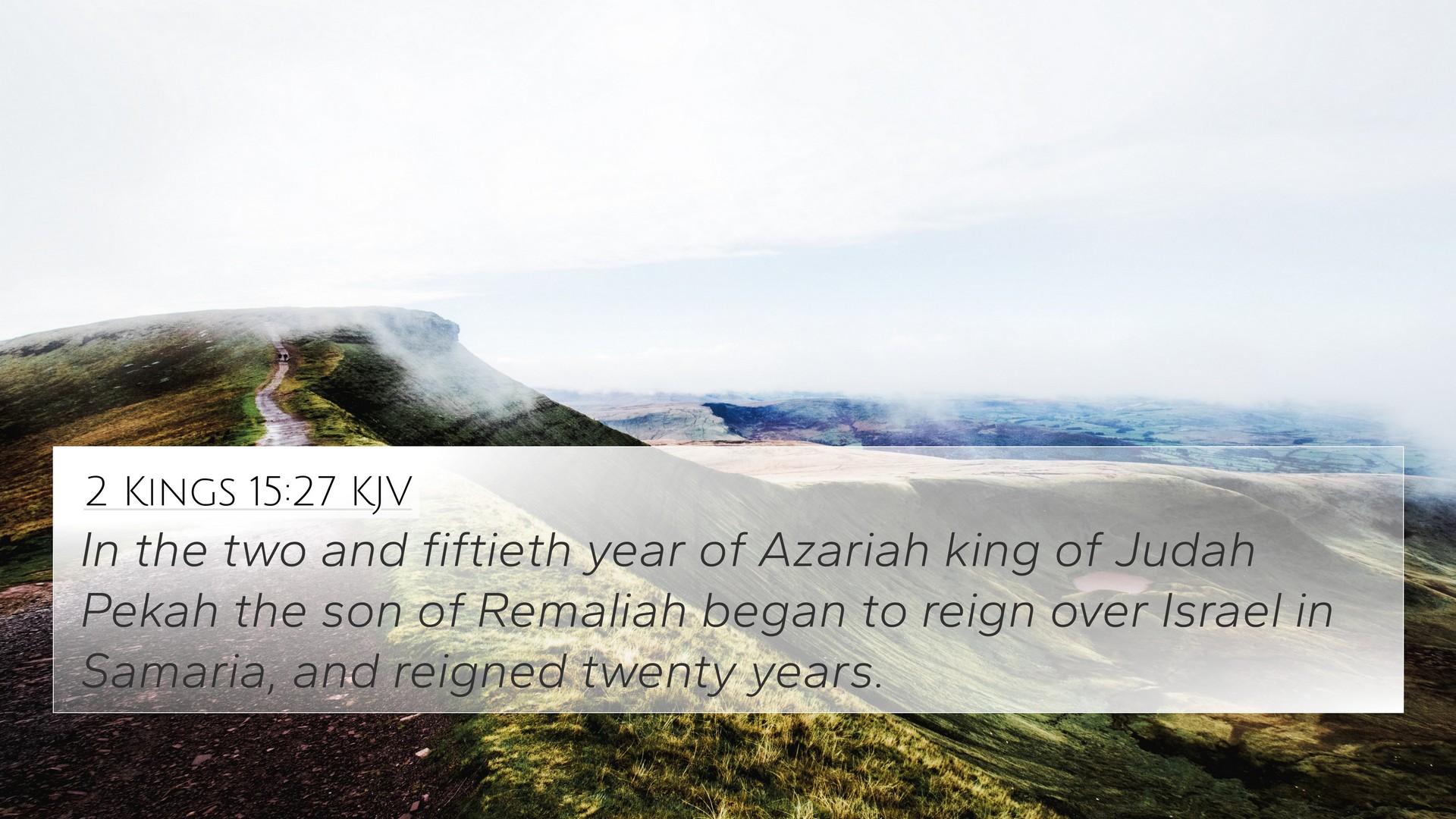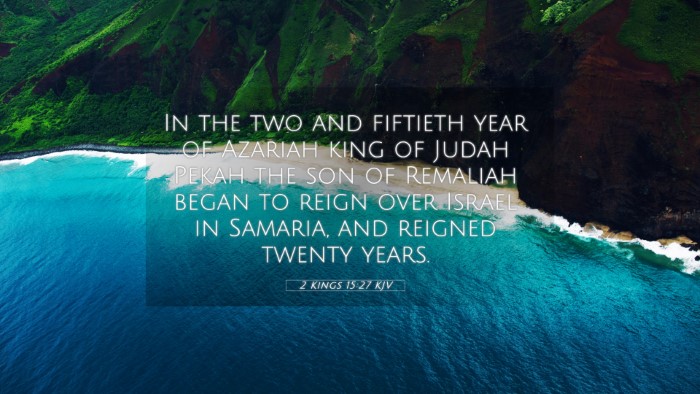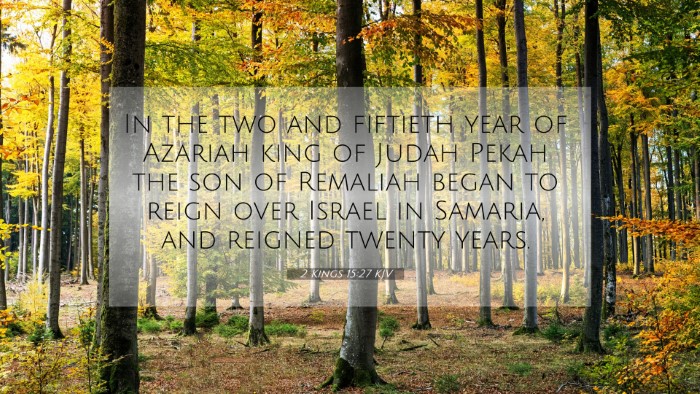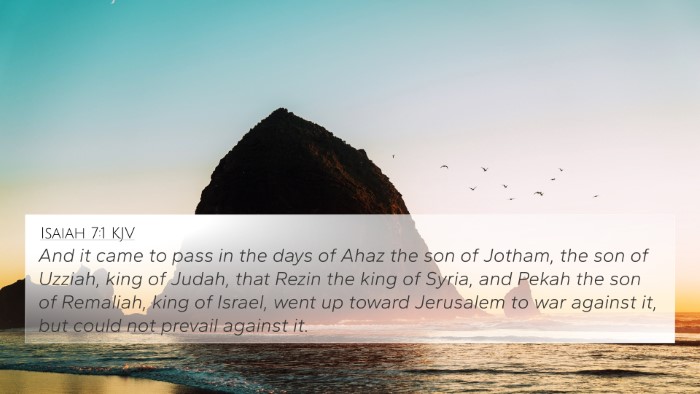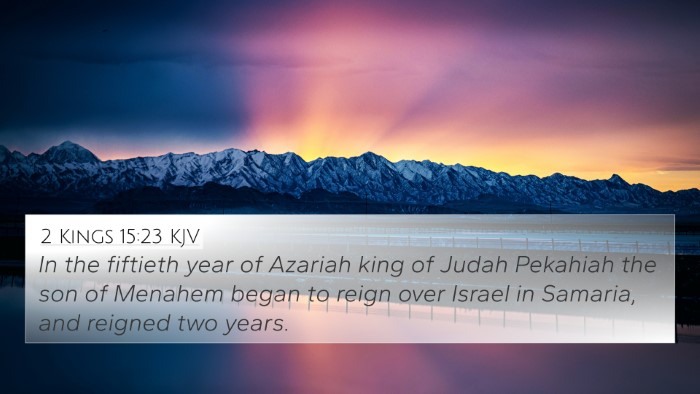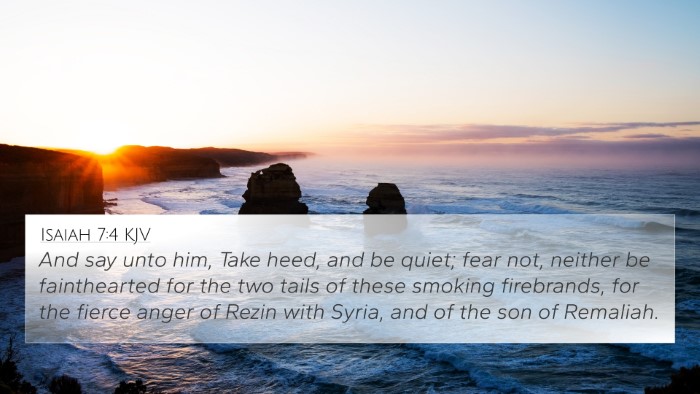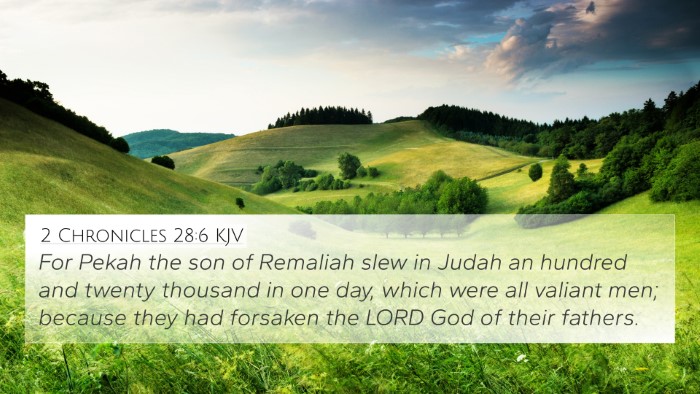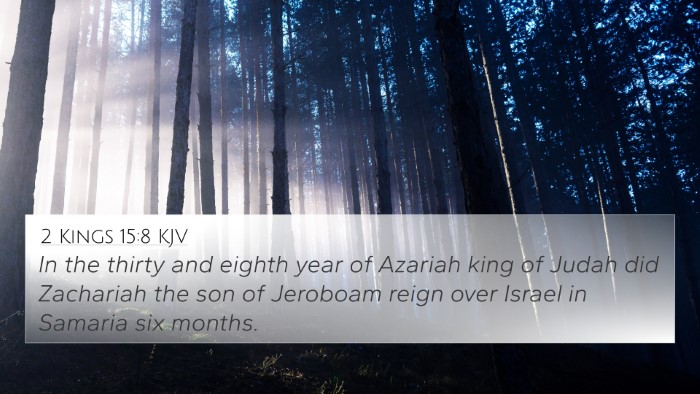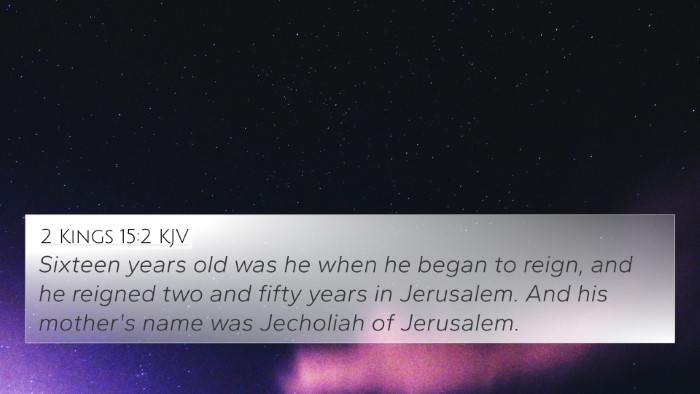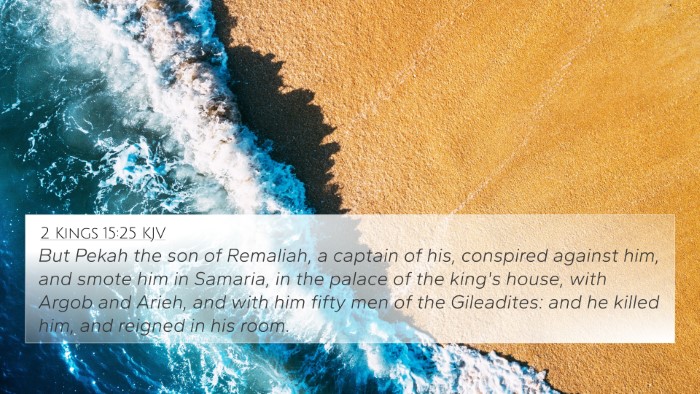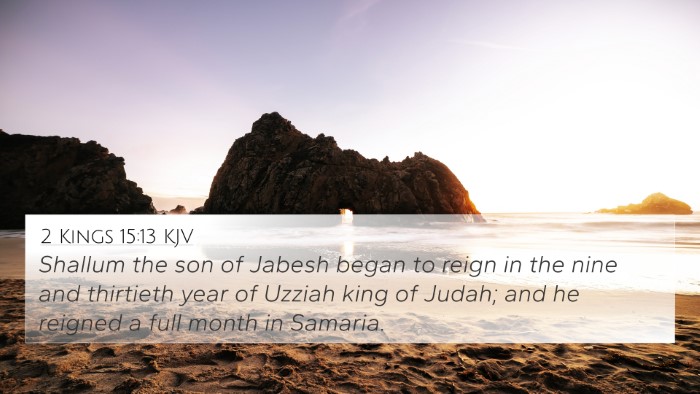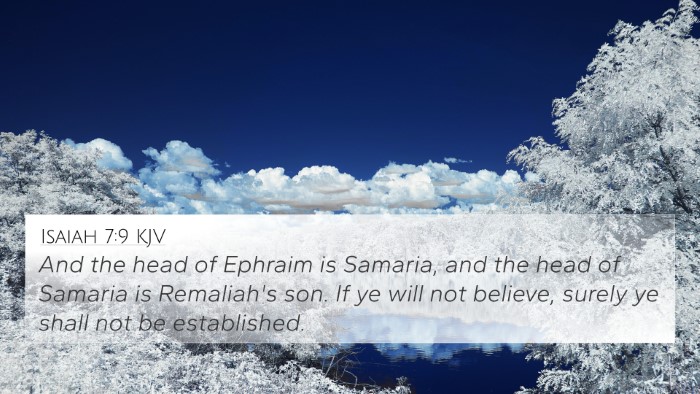Understanding 2 Kings 15:27
Verse: “In the fifty second year of Azariah king of Judah, Pekah the son of Remaliah began to reign over Israel in Samaria, and reigned twenty years.” (2 Kings 15:27)
Overview
This verse marks the beginning of Pekah’s reign over Israel, providing historical context within the divided kingdom period of Israel’s monarchy. It situates Pekah in the broader timeline of kings that ruled both Israel and Judah.
Primary Themes
- The Historical Context: This verse is crucial for understanding the shifting dynamics of power during a tumultuous period in Israel’s history.
- The Continuity of Reign: Pekah's twenty-year reign speaks to the relative stability amidst the chaos of Israel's leadership.
Commentary Insights
Matthew Henry's Commentary: Henry emphasizes that the reign of Pekah, amidst the backdrop of Judah's kings, reflects the ongoing struggle and division within the nation. This moment highlights God's sovereignty over history, as each reign is orchestrated according to His divine will.
Albert Barnes' Notes: Barnes notes the significance of the timeline, pointing out that this verse emphasizes the synchronicity of reigns between the northern and southern kingdoms, encouraging readers to consider the broader narrative of Israel’s history.
Adam Clarke's Commentary: Clarke delves into the implications of Pekah's reign and its proximity to earlier kings, suggesting that understanding these relationships can deepen one's insight into the unfolding story of Israel as God’s chosen people.
Bible Verse Cross-References
- 2 Kings 14:29: This verse discusses the end of Jeroboam II’s reign, setting the stage for Pekah's rise.
- 2 Kings 15:1-2: The reign of Azariah in Judah, highlighting the generational shifts in leadership.
- Isaiah 7:1: This passage introduces the context of Pekah's reign during the threat of military conflict against Judah.
- 2 Chronicles 28:5: Offers insight into the consequences of the political atmosphere during Pekah's time.
- Micah 7:2: Reflective of the spiritual decline in Israel during the reign of various kings.
- Hosea 1:1: Denotes the timeframe of various prophetic messages during Pekah's rule.
- Daniel 2:21: A reminder of God’s sovereignty over the appointing and removal of leaders, which includes kings like Pekah.
Thematic Connections
This verse not only points to a specific moment in history but serves as a bridge to several biblical themes:
- Leadership and Accountability: The examination of kings and their faithfulness to God.
- Prophecy and Fulfillment: Understanding how the reigns of kings set the stage for prophetic messages in the Bible.
- The Nature of God's Covenant: How Israel's political failures correspond with their faithfulness or unfaithfulness to God's covenant.
Connecting with Other Scriptures
Understanding 2 Kings 15:27 in light of other passages is vital for a comprehensive grasp of its meaning:
- Cross-referencing this verse with passages in Amos can provide insight into the social injustices prevalent during Pekah's reign.
- Exploring the relationship between Pekah and successors like Hoshea further illustrates the cyclical nature of leadership in Israel.
Conclusion
2 Kings 15:27 is not merely a historical marker; it reflects a divine narrative that speaks to themes of leadership, covenant faithfulness, and God's overarching sovereignty throughout Israel's history. By cross-referencing this verse with others, one can uncover profound insights that connect Old and New Testament themes, enriching one's understanding of scripture.
